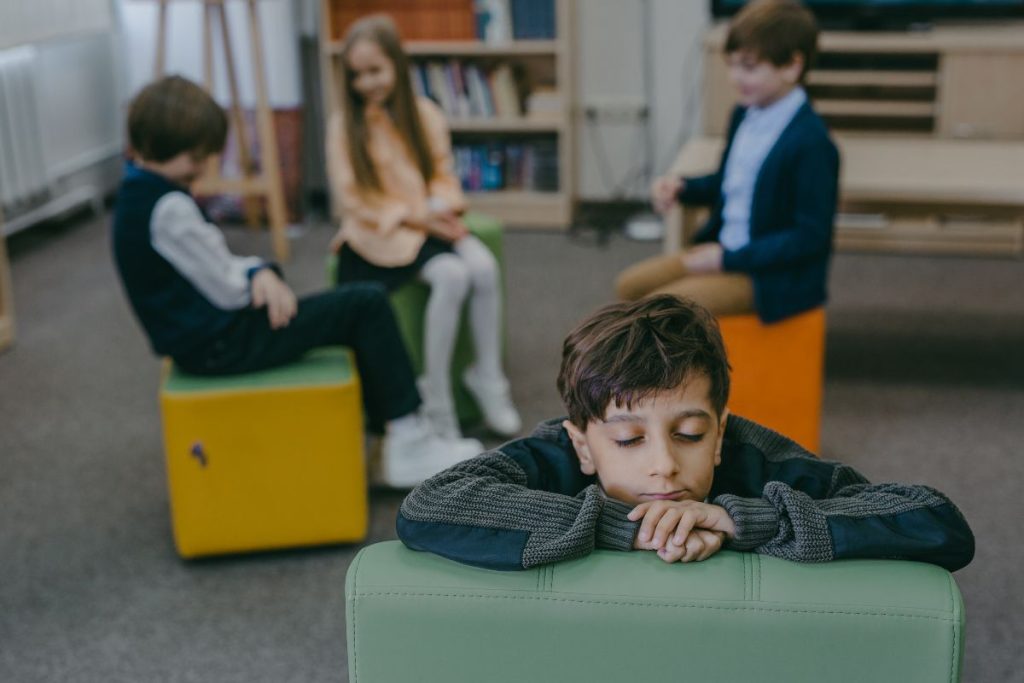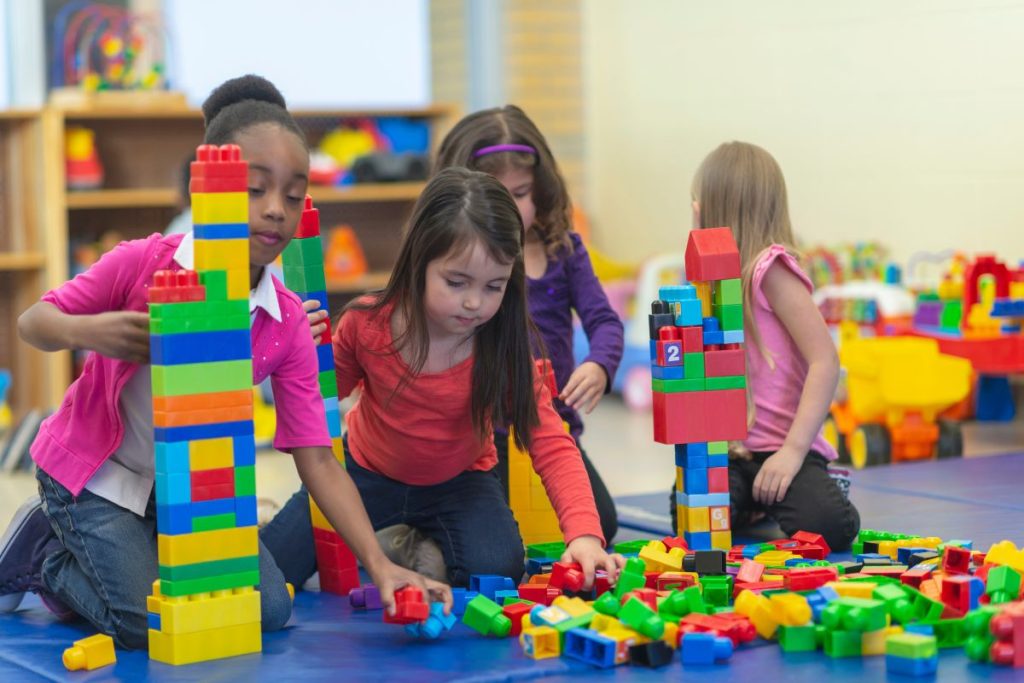As a mother, one of the most heartwarming experiences is watching your little one blossom into a social butterfly, interacting with their peers, and navigating the world with inquisitiveness. However, when your 5-year-old seems reluctant to socialize, many questions and concerns start cropping up. Is my child shy or is there something more? Why is my little one not playing with other kids or joining group activities? This document aims to delve into the possible reasons why your 5-year-old may not be socializing as expected, and offer guidance on nurturing them into becoming more socially interactive.
Understanding a 5-Year-Old’s Social Behaviour

Typical Social Skills and Behaviour for a Five-Year-Old
At around five years of age, children tend to become more independent and adventurous as they start to explore their ever-widening social circles. They begin to show more interest in making friends, participating in group activities, and sharing their experiences. For example, a typical five-year-old may enjoy playing a game of tag with friends, showing off a favorite toy during show-and-tell, or engaging in imaginative play with other children.
Development of Children’s Social Skills
The development of a child’s social skills is a gradual process that varies from child to child. It begins with parallel play, where toddlers play alongside each other but don’t interact much. By around three years old, children start engaging in associative play, which involves interaction but doesn’t require a significant level of cooperation or organization. As they reach five, most children progress towards cooperative play, where they start to plan, cooperate, and play organized games with rules. For instance, children might organize a pretend tea party or a superhero mission.
Signs of Social Struggles

Reluctance to Interact
One of the most noticeable signs that your 5-year-old may be struggling with socializing is a persistent reluctance to interact with their peers. For instance, your child may consistently avoid group activities at school or playground, preferring to play alone instead.
Difficulty in Making Friends
If your child is having difficulties making or maintaining friendships, this could be a sign of socialization issues. They might not have a close friend, or their peers may not include them in activities. An example of this could be your child regularly being the last one to be chosen for team activities.
Limited Eye Contact
Limited eye contact can often be a sign of social struggles. If your child often avoids eye contact while interacting with peers or adults, it might suggest that they are uncomfortable or anxious in social situations.
Struggles with Sharing
At five years old, children are generally learning the concept of sharing and taking turns. If your child consistently struggles with sharing their toys or refuses to take turns in games, it can indicate difficulties with social interaction.
Fear of Social Situations
Excessive fear of social situations, such as birthday parties or group activities, can also point toward social struggles. For instance, your child might throw tantrums or become excessively clingy when faced with such situations.
Remember, it’s normal for children to show some of these behaviors from time to time. But if your child consistently exhibits these signs, it might be worth seeking advice from a pediatrician or a child psychologist to better understand their social development.
Possible Causes for Lack of Socialization

Shyness
Shyness can be a significant factor in a child’s reluctance to socialize. A shy child might feel nervous or uncomfortable in the presence of their peers or unfamiliar adults. For example, they may cling to you at social gatherings or hide behind you when someone says hello. While it’s normal for children to feel shy from time to time, persistent shyness can impede their ability to form relationships with their peers.
Introversion
Introversion is another common reason why a 5-year-old may not be socializing as much as their peers. An introverted child might prefer solitary activities or interactions with one or two close friends, rather than large group settings. For instance, instead of joining in a big game of tag at recess, your introverted child might prefer to spend that time reading a book or drawing a picture. This doesn’t mean they’re antisocial or that there’s something wrong. They simply enjoy their own company or that of a few close friends.
Social Anxiety
Social anxiety can also be a factor in your child’s reluctance to socialize. This could manifest as excessive worry about social situations, fear of negative judgment, or fear of embarrassment. For example, your child might get visibly upset or anxious at the thought of going to a birthday party or other social event.
The Impact of Major Life Changes
Major life changes, like a move or a new sibling, can also affect a child’s social behavior. Such transitions can be stressful for a young child, pushing them to withdraw socially as they adjust to their new circumstances. A previously outgoing 5-year-old, for instance, might become quiet and withdrawn after a cross-country move.
Understanding these nuances can help you provide the right support and guidance to your child, fostering their social development at a pace that suits them best.
Autism Spectrum Disorders
Autism spectrum disorders (ASDs) can also affect a child’s socialization. Children with ASD often have difficulty with social interaction and communication. They might avoid eye contact, have difficulty understanding social cues, or struggle to make friends. For instance, a child with ASD might not respond when their name is called or might play alongside other children without attempting to interact with them.
Remember, it’s crucial to consult with a professional if you suspect your child might be dealing with social anxiety or if they show signs of ASD. They can provide guidance and support tailored to your child’s unique needs.
Steps to Encourage Socialization

Building Social Skills through Play
Play is a natural way for children to learn and develop social skills. Encourage your child to participate in group play activities, such as board games or team sports. This can help them learn to take turns, share, and cooperate with others. For example, a simple game of ‘pass the ball’ can teach your child the importance of waiting for their turn and sharing the limelight with others.
Encouraging Interaction with Peers
Encourage your child to spend time with peers either through playdates or group activities. This provides them with the opportunity to interact and develop friendships. For instance, arranging a playdate with a friend from school at a local park can offer a relaxed environment for your child to interact and socialize.
Role-Playing Social Situations
Role-play can be a powerful tool to help children understand and navigate social situations. You can role-play different scenarios, such as inviting a friend to play or asking for a turn with a toy. This practice can give your child the confidence to use these skills in real-life situations.
Consistent Encouragement and Positive Reinforcement
Always provide positive reinforcement when your child makes an effort to socialize. Praise them for their efforts, even if the attempt doesn’t go perfectly. For example, if your child shares a toy with a friend, make sure to commend their action, reinforcing the positive behavior.
Providing Opportunities for Group Activities
Involve your child in activities that require interaction with other children. These could be sports teams, art classes, or even a reading club. These platforms will help your child learn how to function as part of a group and interact with different children.
Modeling Social Behavior
Children often learn by observing adults’ behavior around them. So, it’s essential to model good social behavior. Whether it’s making sure to say ‘please’ and ‘thank you’, or showing empathy towards others’ feelings, these everyday actions can go a long way in teaching your child about social norms.
Conclusion
In conclusion, there can be a multitude of factors contributing to a 5-year-old’s hesitance to socialize. It could be influenced by their inherent personality traits, such as the tendency towards shyness or introversion. In some cases, it might be a sign of social anxiety or even Autism Spectrum Disorders. It’s essential to remember that each child is unique and develops at their own pace. As parents, it’s our responsibility to support and guide them through their social development journey. Be patient, be persistent, and most importantly, be supportive. Your little ones will eventually find their way in this vast social world.
